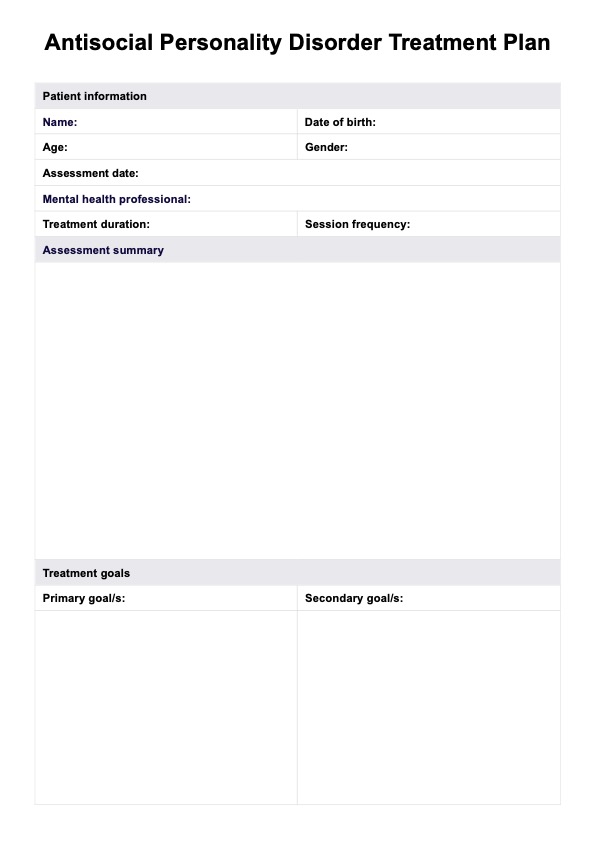Individuals who seek treatment for antisocial personality disorder (ASPD) often face challenges due to the condition's core traits, such as a lack of empathy, impulsivity, and disregard for social norms. The most effective treatment typically combines talk therapy with interventions that address underlying issues.

Antisocial Personality Disorder Treatment Plan
Get access to a free blank Antisocial Personality Disorder Treatment Plan template to structure effective goals and interventions.
Antisocial Personality Disorder Treatment Plan Template
Commonly asked questions
Treatment goals for antisocial personality disorder (ASPD) focus on reducing violent behavior, improving social functioning, and addressing any co-occurring mental health conditions, such as depression or substance use disorders. A key objective is to help individuals gain insight into their actions and the impact they have on others, often achieved through talk therapy.
Treatment for antisocial behavior typically involves therapeutic interventions aimed at addressing the root causes of the behavior, including adverse childhood experiences or other mental health conditions. Talk therapy, particularly cognitive behavioral therapy (CBT), is a primary approach to help individuals recognize harmful patterns and work towards healthier social interactions.
EHR and practice management software
Get started for free
*No credit card required
Free
$0/usd
Unlimited clients
Telehealth
1GB of storage
Client portal text
Automated billing and online payments











